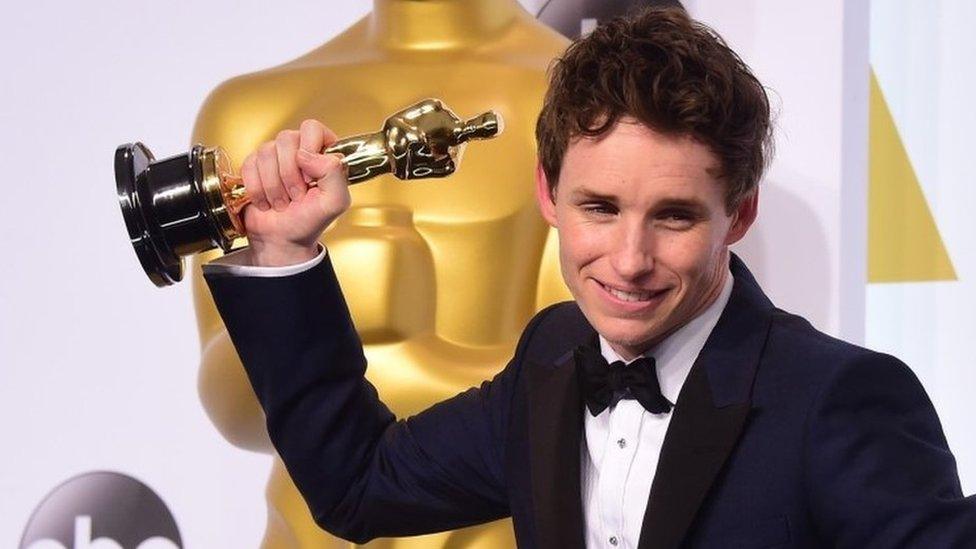Are too many Army officers privately educated?
- Published
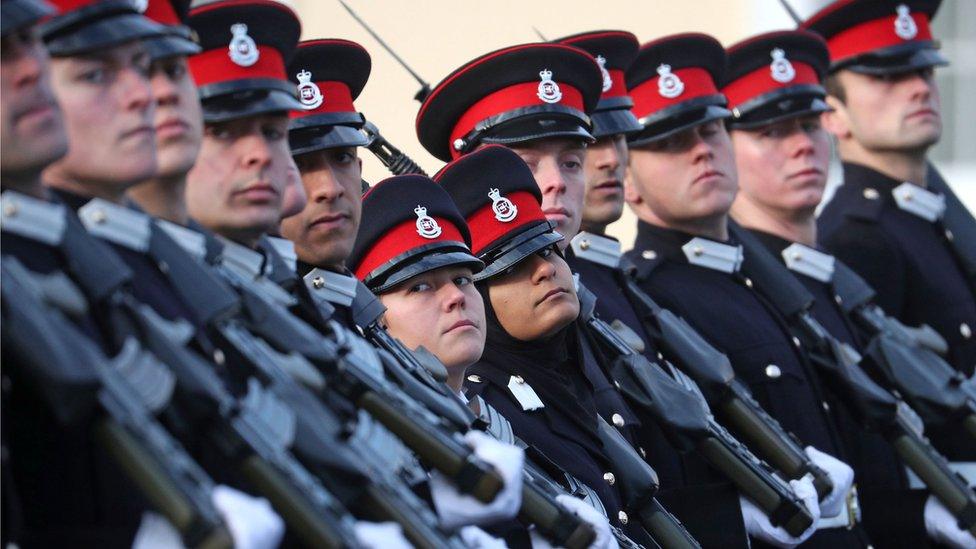
Nearly half of the British Army's latest intake of officer cadets were privately educated, the BBC has found.
A Freedom of Information request has revealed 49% of those who entered the Royal Military Academy at Sandhurst in January came from fee-paying schools.
The Sutton Trust, which aims to improve social mobility, said those at the top of the armed forces were seven times more likely to go to private schools.
The Army said it was "increasing our outreach to those in state education".
The figures stand in contrast to the Royal Navy, which saw 64% of its officer cadets entering the Royal Navy College, at Dartmouth, from state schools.
The Royal Air Force says it does not collate information on education background.
However, 35% of its officer cadets entering Cranwell College in March had previously served in the ranks.
Cadet forces
The very top jobs in both the RAF and the Royal Navy have recently been given to men educated at state schools.
But that has very rarely been the case for the Army.
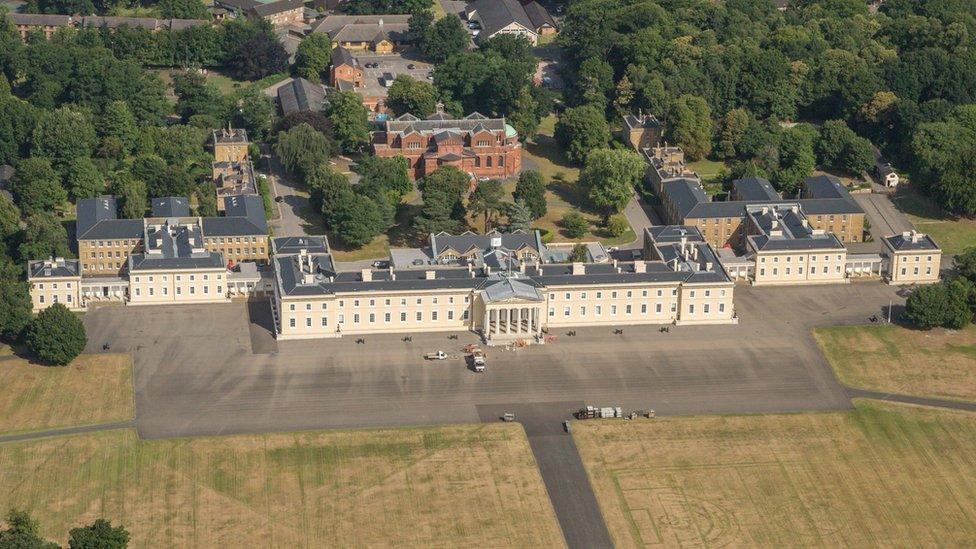
Sandhurst College is where all officers in the British Army are trained to take on the responsibility of leading soldiers
Recent heads of the Army have more commonly attended one of Britain's elite public schools.
The last Army chief of the general staff to have been taught at a state school was way back in the early 1950s.
There are a number of factors that may explain why change may have been slow.
Combined Cadet Forces (CCF) in schools offer pupils a taste of military life and can be a gateway to a career in the military.
But another Freedom of Information request has revealed there are nearly as many cadet forces in fee-paying schools as in the state system: 194 private schools have a CCF compared to 205 state schools.
Around 7% of the UK population is privately educated, rising to 18% at sixth form level.
Eton, one of the most expensive schools in the country, even had a full time guards officer to run its cadet force - paid for by the Army - until the role was axed in 2016.
The Ministry of Defence has now set up a programme to increase the number of cadet forces in deprived areas of the country.
Financial incentive
There is another reason why the military's close ties with private education will prove hard to break.
There's a financial incentive to continue the tradition.
The Continuity of Education Allowance (CEA) is, as the name suggests, designed to give service personnel stability for their children while they move around the country or abroad.
The Ministry of Defence contributes around £80m a year towards the boarding school fees of service personnel.
The allowance is available to all service personnel who meet the criteria.
But it is officers who make the most use of it, even though they are a smaller proportion of the armed forces.
Last year, 2,720 children of officers received the allowance - compared to 1,765 children of those serving in the ranks.
The allowance is capped at £21,000 per child, per year.
Given that there are few state schools with boarding facilities most of that money subsidises private school fees - including some of the most elite in the country - including Eton, Harrow and Marlborough College.
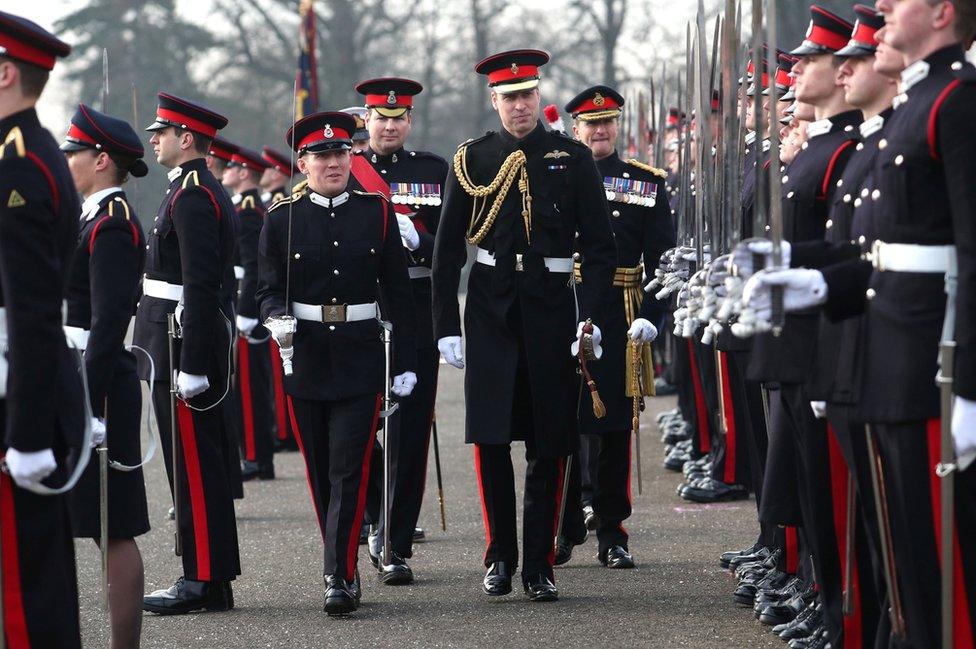
The Duke of Cambridge, who attended Sandhurst, inspects cadets in December last year
And why does this matter?
The armed forces say they want to reflect the society they represent.
They have set targets for the proportion of women and ethnic minorities - 15% for women and 10% BAME by 2020. But there has been limited change at the top.
Major General Paul Nanson, from the Army, said "Sandhurst, like the Army, is all about equal opportunity and maximising potential."
He added: "At the Academy we worry less about which university or school an individual went to; more about their leadership potential."
'A diverse employer'
The Army says it has a separate scheme for older soldiers to be promoted from the ranks. So-called late entry officers account for about 20% of all Army Officers.
A Ministry of Defence spokesperson added: "We are a diverse employer wishing to attract and offer careers to people from a wide range of backgrounds.
"We are increasing our outreach to those in state education to ensure that everyone is aware of the opportunities a career in the armed forces offer."
It is claimed the Duke of Wellington once said the Battle of Waterloo was won on the "playing fields of Eton".
Two hundred years on and much has changed. But the British Army is still heavily reliant on its cadre of privately-educated officers.
- Published14 December 2018
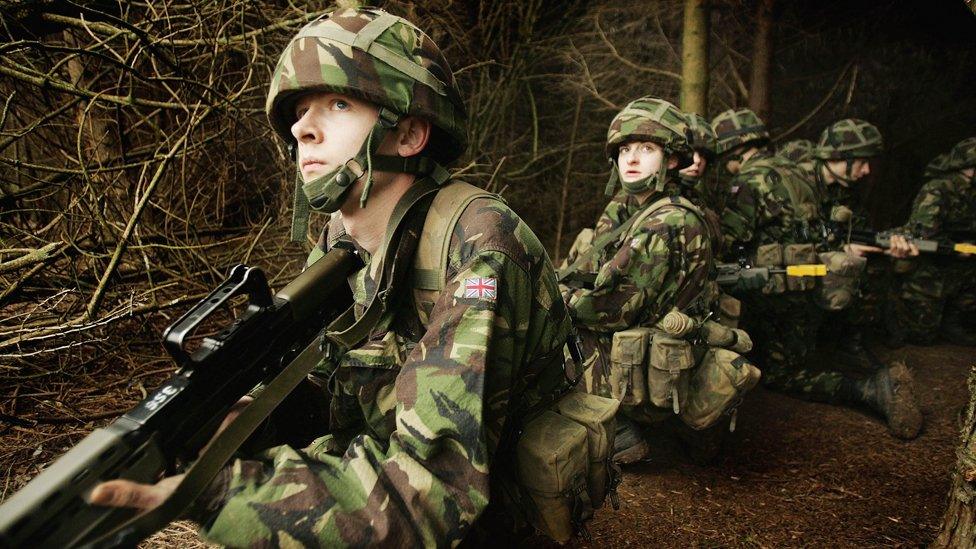
- Published10 January 2018
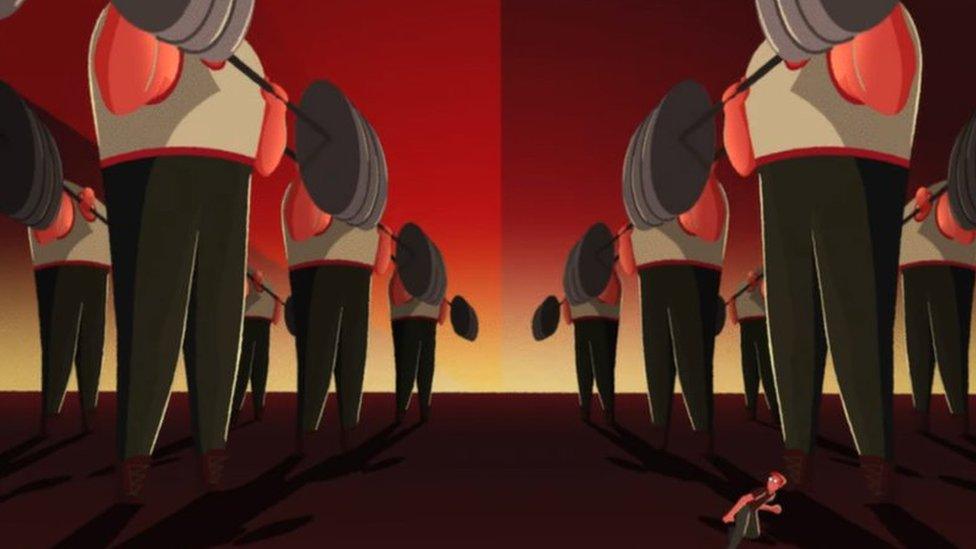
- Published24 February 2016
